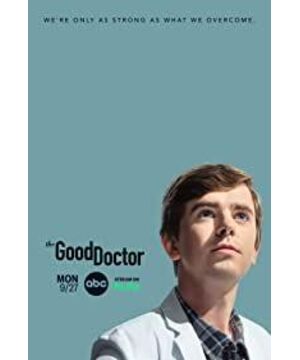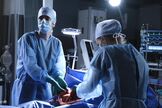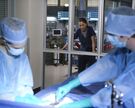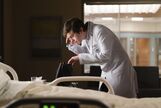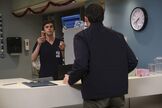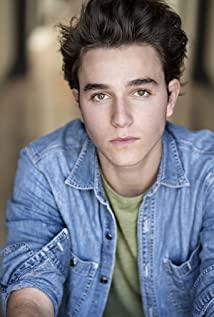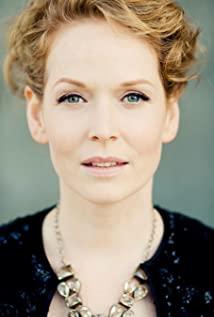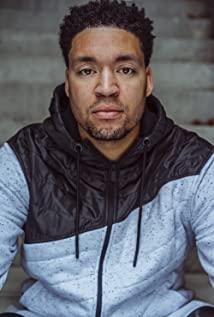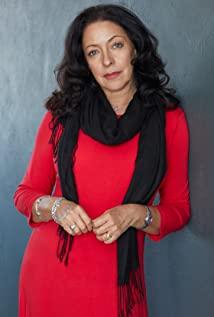What if there was a 0.3 percent hope that someone closest to you could be saved? How would you choose to give up? Still keep going.
I don't know, I don't know if it's to spend some last happy hour with him, or to pray to the doctor outside the ward.
What would you do if you lost your loved one as a child, grew up alone, and met someone exactly like him? Will it confuse the past with the present?
I do not know either
If it was Sean, what would he do. Let's watch the fifth episode of the first season of the American drama Good Doctor.
At the beginning of the play, Wilkes was sent to the hospital after meeting his son, who did not even attend his wife's funeral, due to his allergic symptoms. Sean, who is rarely late, gets along better with his colleagues and can answer simple jokes smoothly. When others began to question Wilkes, he was caught by the little boy on the side, who was sitting alone by the hospital bed with a broken bone, waiting for his parents to arrive.
Sean forgot what he was doing and took the initiative to ask about his condition. Because the boy looked very similar to Sean's deceased brother Steve, he continued the routine process as usual, but when the Dean asked him, he was slightly flustered. I thought this episode was heartwarming, because the boy Galico was Steve-like, friendly, funny, and mature for his age. Who knew that Sean soon diagnosed Gallico with a brain tumor and was diagnosed with cancer.
After learning of the news, Galico's parents told Sean that their son had been diagnosed with cancer and had only three months to live, and hoped to keep the condition a secret from Galico. Facing this boy who was very similar in appearance and temperament to his younger brother, half of his nostalgia for his younger brother and half of his regret for his young life, Sean studied the medical records all night and found that 0.3% of the cases were misdiagnosed.
For this 0.3%, Sean took the initiative to ask Melendez and Glassman for help, hoping to check again. But since the chances of a wrong cancer diagnosis are so slim, Glassman discourages Sean from giving Galico unrealistic hope. Because of Sean's inability to lie, Galico's parents were furious when they learned that their son had been told he had cancer. Melendez ordered Sean to withdraw from Gallico's treatment team, and he performed the surgery himself to correct the blocked artery that was holding the boy's life back.
Sean learned that the cancer diagnosis was correct and that Gallico would still die. At that moment, he who had come to hear the results of Melendez's operation quickly sat down, his eyes full of sadness. Sean went to see Galico in his ward, and flashed back to the picture of his brother just falling from a height. I wonder if there is any self-blame and powerlessness in his heart. "I have worked hard for so long, and I have been very active in studying medicine. , why can't I save you." When Galico woke up, he turned around immediately, and there were tears in his eyes, who usually rarely have emotional fluctuations.
What healed him was Galico's smile. Sean took out the birthday present "To Kill a Mockingbird" that he gave to his younger brother at that time. This was the warmest power left by his younger brother except for the small model knife. He started with the page his brother had bookmarked, and read it to Gallico, the part he didn't finish. After reading, Sean took the bookmark and put it in his pocket, leaving the book with Gallico. At this moment, he has grown up. Books are just objects, but family love has always been there. This is the power of his life.
Speaking of another patient, Wilkes, he is sixty-six years old, and his wife is his former bond with his son. They can maintain good communication with them, but the two of them seem to be separated by mountains and seas, and the death of his wife has aggravated the estrangement. The problems between the two were made more embarrassing due to the lack of communication. Through Jared's coordination, Vilks expressed sadness and anger because of his son's absence from the funeral. The son was six full because of personal emotional problems and escaping his father's expectations for him. month back home. In the end, after the successful completion of the Wilkes operation, the two reached a reconciliation and returned to their father-son relationship.
Is it because you face loss that you know how to cherish it? The stubborn and stubborn father and the depressed and inferior son seem to be irreconcilable and contradictory. In fact, the family has always been there, and they all miss each other, especially after the death of the husband's wife and the son's mother. The love is separated by mountains and seas, and both mountains and seas can be flat. Family love is the greatest force in the world, it not only spans time, but also life and death. For example, Steve is to Sean. He has only been in this world for more than ten years, but he has warmed Sean's entire life.
From this episode, I found that there are actually many timelines in this drama. Sean is the growth line, and the other doctors are gradually showing their inner development lines. Everyone is an independent individual, there is no supporting role for anyone, they are all protagonists. They have ordinary people's lives, but also a group of warm doctors.
The so-called doctor's benevolence should be the doctor's empathy for the patient. This is Claire's advantage, although it stems from her poor childhood, and it is also the reason why Andrews objected to Sean's entry. In the hospital, everyone has to take off their pretense. The laboratory doctor said that "blood doesn't lie." Your living habits, your diet, and the things you have done on the road are all imprinted on your body. The doctor's understanding and respect is the patient's final dignity. From the moment the body reported a problem, the high-ranking officials and wealthy wealth were all in a hurry for decades in the world.
After all these experiences, everyone will find that our greatest strength is the family love that never disappears, guarding us forever.
View more about The Good Doctor reviews


